News
Speaker Abbas Reiterates Commitment Of 10th House To Support Tinubu’s Economic Reforms
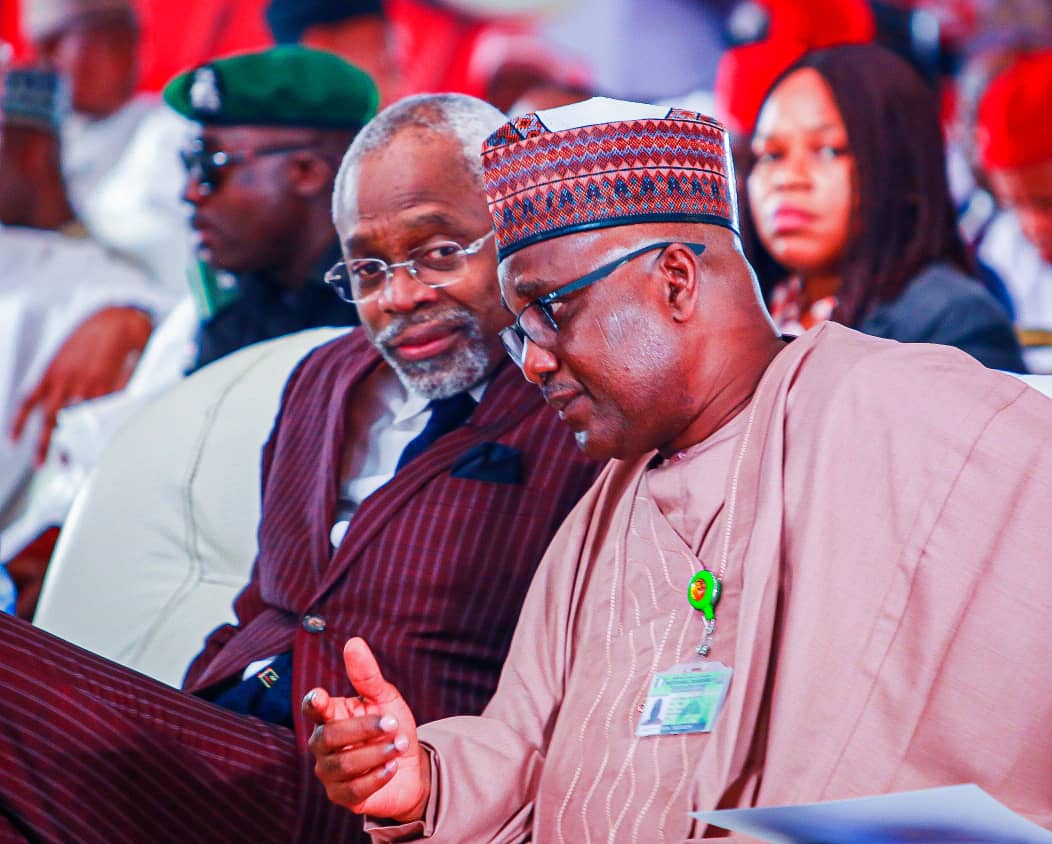
…says Nigeria’s VAT collection, lowest in Africa
By Gloria Ikibah
The Speaker of the House of Representatives Rep. Abbas Tajudeen, has said that Nigeria’s efficiency in the collection of Value Added Tax (VAT) is the lowest among its African peers, indicating significant inefficiencies in its tax system.
He expressed the preparedness of the 10th House to support the economic policies and programmes of President Bola Tinubu led-administration.
This, Speaker Abbas who stated this on Tuesday in Abuja while delivering his keynote address at the opening of a two-day retreat for members of the House, also noted that the support includes engagement with stakeholders on laws governing finance, tax, and oil sub-sectors of the economy, with the aim of causing positive reforms.
The legislative retreat on Economic Transformation and Development was organised by the House in collaboration with the Federal Inland Revenue Service (FIRS) and the Konrad Adenauer-Stiftung Foundation (KAS), with the theme: ‘Navigating Change: Legislative Strategies for Economic Transformation.’
Speaker Abbas noted that the House made a deliberate decision to focus on tax reforms and modernisation as well as a review of the implementation of the Petroleum Industry Reform Act (2021). “The overarching objective is to discuss and identify concrete legislative strategies for economic transformation,” he said.
He expressed his pleasure that the legislative retreat was taking place “at a point in our nation’s economic landscape when the current administration is diligently implementing policies and initiatives to steer our economy towards recovery, growth, and sustainable development.”
He stated that the commitment and foresight shown by the government in addressing economic challenges “deserve commendation, and it is imperative that we, as legislators, align our efforts to support and enhance these endeavours.”
He said: “As a critical arm of government, the legislature has a crucial role in shaping our nation’s economic transformation and development. Part of our law-making powers is the authority to enact tax reforms and strengthen resource governance mechanisms. By designing and implementing progressive tax policies, we strive to ensure a fair and efficient tax system that boosts revenue while fostering economic growth and equity. This involves not only broadening the tax base and simplifying tax codes but also enhancing compliance and minimising loopholes that benefit only the wealthy.
“Furthermore, the legislature’s oversight function is central in the governance of natural and financial resources. It ensures transparency and accountability in the exploitation and management of resources, which is essential for sustainable development. By holding government and private sectors accountable, the legislature helps prevent the mismanagement and corruption that can often undermine economic progress.”
He added that the retreat aimed to foster stakeholders’ engagement, ensure constructive dialogue, exchange ideas and offer insights on legislative strategies that will contribute to the economic transformation of our country.
“Accordingly, this forum allows us to take a deep dive into the tax reforms instituted by President Tinubu and undertake a review of the implementation of the Petroleum Industry Act (2021). We consider these two initiatives vital in our nation’s quest for economic recovery, transformation and growth. The two areas speak to both the oil and non-oil sectors of the Nigerian economy,” he said.
While stating that Nigeria’s tax revenue struggles are primarily due to narrow bases for indirect taxes, low compliance rates among taxpayers, substantial tax exemptions, and generally low tax rates, the Speaker added that the situation was compounded by “a lack of enthusiasm and morale for tax compliance, contributing to the nation’s underwhelming fiscal performance.”
He stressed: “Comparatively, Nigeria’s efficiency in collecting Value Added Tax (VAT) is the lowest among its African peers, indicating significant inefficiencies in its tax system.
“This trend of low tax revenue, coupled with a continued dependency on the increasingly unstable oil revenue, presents a major risk to Nigeria’s fiscal sustainability. It also highlights an important area for potential reform to boost revenue and stabilise the country’s economic framework.
“The lack of growth in non-oil revenue sources and the volatile nature of oil income underscore the urgent need for Nigeria to diversify its revenue base and enhance its fiscal management to ensure economic stability and growth.”
Speaker Abbas noted that several empirical studies had shown that Nigeria has the potential to further increase revenue if priority tax reforms are implemented. He stated that “the House stands ready to support the Executive to achieve its overall goal of reversing the negative trend.”
He also noted that this is in keeping with the Legislative Agenda of the House, which prioritises economic growth and development, focusing on economic restructuring, diversification and agricultural development and enacting tax reforms that will simplify our tax codes, expand the tax base and strengthen mechanisms for compliance.
The Speaker stressed: “Of particular interest to the House is increasing government revenues without unduly burdening the citizens, especially the vulnerable.”
Another important thematic area at the retreat, Speaker Abbas noted, was the potential of digitalisation and technology to transform tax administrations by enhancing the efficiency, transparency, and fairness of tax systems. He said these advancements enable tax authorities to collect, process, and utilise information more effectively, leading to improved operational capacities.
For taxpayers, he said integrating digital tools could simplify compliance, making it a more seamless part of everyday personal and business activities, thereby reducing friction and increasing ease of engagement with tax systems.
The Speaker noted that the second leg of the retreat centred on the Petroleum Industry Act (PIA), which represents a legislative milestone passed by the 9th Assembly. “This Act is not just a piece of legislation but a transformative blueprint designed to overhaul the petroleum industry, which is the backbone of our economy,” he said, adding that, “It’s an opportunity to align our actions with our aspirations, ensuring that this vital sector operates efficiently, transparently, and, most importantly, beneficially for every Nigerian.”
Speaker Abbas stated that the National Assembly is vital in ensuring continuous review of the PIA to ensure its effectiveness in a rapidly evolving industry landscape. This, he said, involves meticulously monitoring the implementation of the Act, analysing its impacts, and identifying areas where modifications may be necessary.
“For this reason, we are actively engaging various stakeholders at this retreat, including government bodies, industry experts, and community representatives.
“Today’s sessions are designed to gather diverse perspectives and insights, which will be essential for making informed amendments that address emerging challenges and ensure that the Act meets its intended objectives.
“This iterative process will not only help in fine-tuning the Act but also ensure that it remains aligned with the broader economic and environmental goals of Nigeria,” he said.
News
Belgian Ambassador Commits to Stronger Nigeria Ties
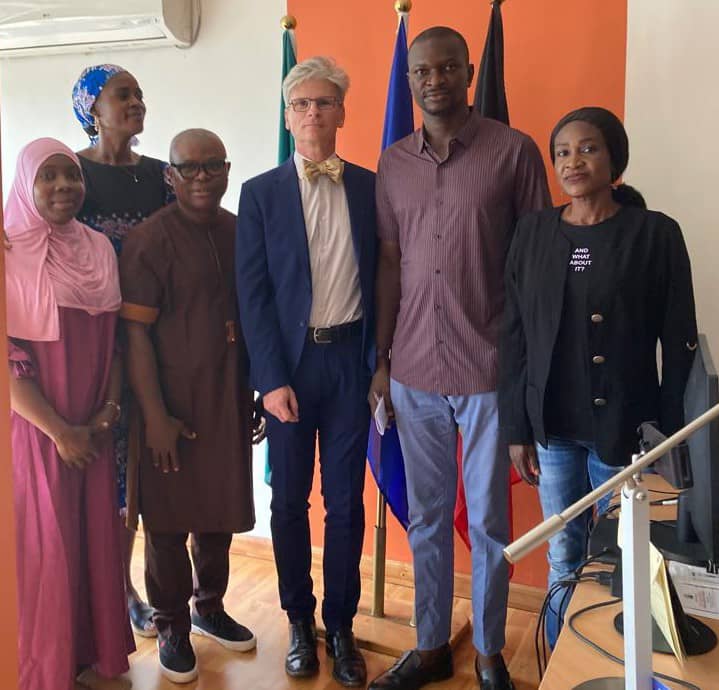
By Gloria Ikibah
The Embassy of Belgium in Nigeria has reaffirmed its commitment to deepening diplomatic relations with the country.
Belgian Ambassador Pieter Leenknegt stated this during a courtesy visit by the Diplomatic Correspondents’ Association of Nigeria (DICAN), led by its Chairman, Frederick Idehai, at the embassy in Abuja.Discussions centered on fostering collaboration, particularly in capacity-building initiatives for DICAN members and other areas of mutual benefit.
Addressing the delegation, Ambassador Leenknegt also commented on the ongoing discord between Senate President Godswill Akpabio and Kogi Senator Natasha Akpoti-Uduaghan, describing it as an unnecessary distraction, urging key stakeholders to promote dialogue and reconciliation in the interest of national stability.
Speaking further, Ambassador Leenknegt has some reservation over what he described as “sloppy journalism” among Nigerian Journalists which needs to be corrected.
This unpalatable adjective, according to the envoy, stems from an experience he had when he visited the Minister of the Federal Capital Territory, Nyesom Wike.
“It was a fruitful meeting I had with the FCT Minister with key areas of interest well highlighted.
“However, the next day I was surprised to find in over 13 print and online media that the meeting the previous day, was between the outgone Ambassador of the Embassy and with his photograph attached.
“This was a meeting I personally attended so how could they attribute it to my predecessor and attached his photo?
“That’s terrible and what it meant was that one person goofed and others copied from the original source without due verification,” he lamented.
Earlier in his remarks, DICAN Chairman, Comrade Idehai Frederick emphasised that the partnership will enhance cultural exchange between Nigeria and Belgium.
He said the role of media in promoting democracy, good governance and bilateral relations cannot be overemphasized.
“We will provide your country with the needed support in the area of quality and credible reportage for the sake of humanity,” Idehai said.
The visit also touched on the upcoming DICAN Diplomatic/Security International Conference, scheduled for June 19, 2025, in Abuja to brainstorm on how to make the world a better and safer place.
“We want to enhance bilateral relations through our engagement and agenda setting.
“When governments across the nations of the world know that journalists are interested in monitoring their programmes, they wake up and address their challenges,” Idehai stated.
News
Reps Minority Caucus Condemns Killings in Edo State

By Gloria Ikibah
The Minority Caucus of the House of Representatives has strongly condemned the recent killings of about 16 Nigerians, mainly northerners, by an armed group in Edo State.
In a statement signed by Minority Leader, Rep. Kingsley Chinda, Minority Whip, Rep. Ali Isa JC, Deputy Minority Leader Rep. Aliyu Madaki, and other leaders of the caucus on Saturday, the caucus described the attack as “barbaric” and “reprehensible,” warning that if such violence is not curbed, it could threaten national peace and unity.
“We find such brutal killings of innocent Nigerians in any part of the country by lawless mobs very reprehensible, and if allowed to fester without being put in check by responsible organs of the federal government, such actions could threaten the peace and unity of the country,” the statement read.
The lawmakers urged Nigerians to avoid taking the law into their own hands and instead seek the intervention of law enforcement agencies when faced with security concerns.
The Minority Caucus called for swift action, and urged President Bola Ahmed Tinubu to direct security agencies to investigate the incident and ensure those responsible are brought to justice.
“We implore all Nigerians to never resort to such jungle attacks on their fellow citizens but to always implore the services of lawful authorities whenever they notice any issue of concern.
“In the face of this grave incident, which is already setting emotions on edge in parts of the country, we hereby call on the President and Commander in Chief of the Armed Forces of the Federal Republic of Nigeria, His Excellency Senator Bola Ahmed Tinubu, GCFR, to direct the security agencies to investigate this matter and bring all those involved in the killings to book in order to prevent its recurrence. And also adequate compensation should be paid to the affected families,” they demanded.
The caucus also appealed to Nigerians to remain calm and allow the government to handle the matter.
“We also call on all Nigerians to remain calm, peaceful, and law-abiding and allow the federal and state governments to get to the root of this matter in the interest of justice,” the caucus stated.
The lawmakers extended their condolences to the families of the victims, and assured Nigerians of their commitment to ensuring justice is served.
“We express our sincere sympathies and condolences to the families of the victims even as we assure them and all Nigerians that we, the Minority Caucus of the House of Representatives, will remain eternally vigilant until justice is done on this matter,” the statement continued.
News
Police ‘rescue’ landlord, daughter from k!dnappers clutches in Lagos

By Kayode Sanni-Arewa
Suspected gunmen abducted a landlord and his daughter in the Ijede area of Ikorodu in Lagos.
In a statement on Sunday, Benjamin Hundeyin, the Lagos police spokesperson, said the kidnappers abducted the victims on Wednesday.
Hundeyin added that on Saturday, the command rescued the kidnapped victims unhurt and handed them over to their family members.
According to the police spokesperson, the command has launched a manhunt for the perpetrators.
“The police received information that some kidnappers invaded Ijede community and kidnapped two persons,” the statement reads.
“Upon receipt of the report, police operatives were mobilised to the scene where it was observed that the kidnappers forcefully gained entrance into the house of a 40-year-old man, killed the security dog and kidnapped him.
“The kidnappers equally forced their way into the nearby house and kidnapped the landlord’s 25-year-old daughter.
“With the collaborative efforts of both the police joint task force and other stakeholders, the kidnapped victims were rescued unhurt and handed over to their family members.
“The area is relatively calm and being closely monitored, and efforts are ongoing to apprehend the wanted suspects.”
-

 News13 hours ago
News13 hours agoWike’s Aide reacts as photo appears online, points accusation finger at paid failed actress
-

 News18 hours ago
News18 hours agoUpdated: WATCH moment Gov Diri’s Tech Adviser Kerry admits blowing up pipelines (Video)
-

 News8 hours ago
News8 hours agoFormer HoR member, TeeJay Yusuf calls on IGP, Kogi govt, other agencies to curb rising insecurity in Okun-Yoruba
-
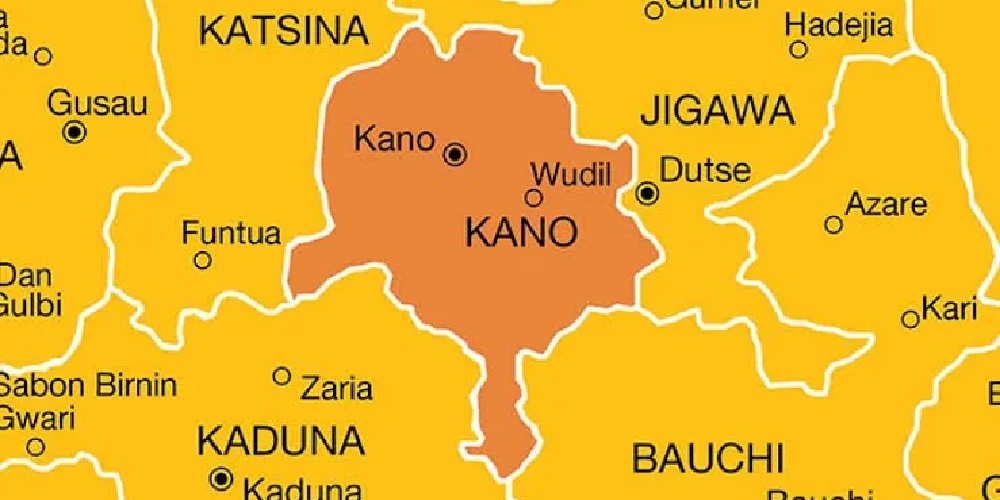
 News10 hours ago
News10 hours agoEdo Killings: Kano Govt Sends Fact-Finding Delegation, Demands Justice
-
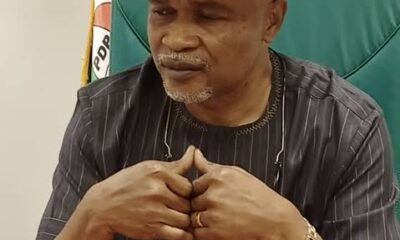
 News3 hours ago
News3 hours agoReps Minority Caucus Condemns Killings in Edo State
-

 News10 hours ago
News10 hours agoJust in: Popular Osun Monarch Joins Ancestors
-

 News6 hours ago
News6 hours agoSad! Popular actor, Richard Chamberlain is dead
-
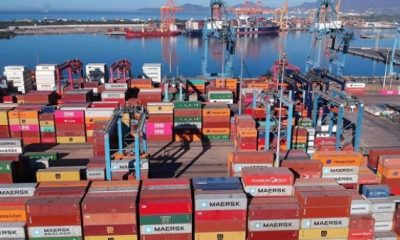
 News7 hours ago
News7 hours agoMali, Niger, Burkina Faso Impose 0.5% Levy On Goods From ECOWAS Nations





